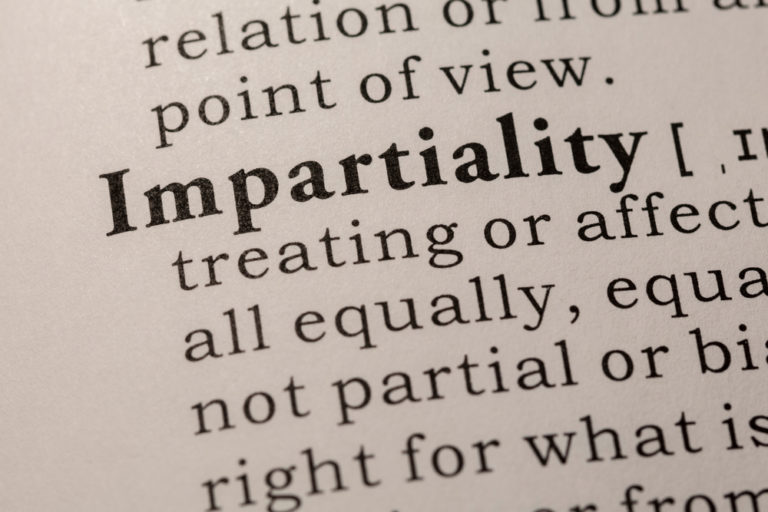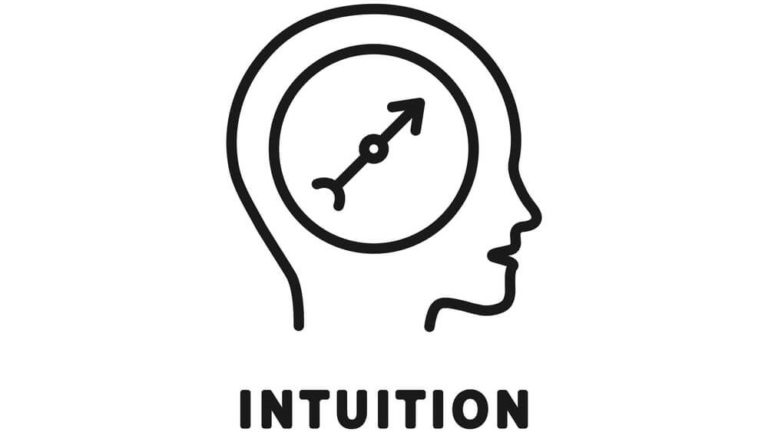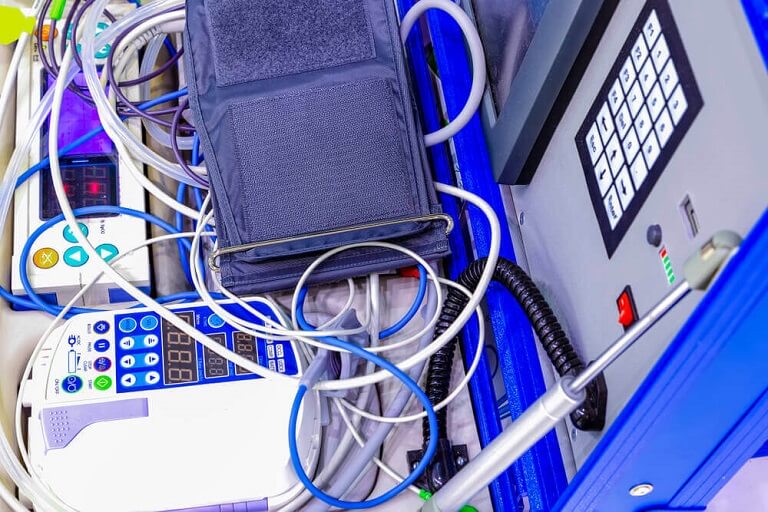
The nursing profession mainly attracts people with a desire to help others. However, being able to think critically is a vital skill in Nursing. So, how to develop critical thinking skills in nursing? Experts define critical thinking as skilful perception and analysis ability to evaluate collected information.
The need for nurses to be able to make quick and accurate decisions is crucial. Because every second is precious when it comes to saving someone’s life. Critical thinking skills combined with a passion for patient care can produce fruitful outcomes. So we ask how to develop critical thinking skills in nursing because it helps to reach justified conclusions.
How To Develop Critical Thinking Skills In Nursing
Critical thinking ability in nursing is a valuable skill. Your ability to provide care for a patient will improve visibly. Consequently, the nursing profession is not just limited to patient care anymore. You need to be registered and highly trained. Because today’s healthcare is as dynamic and complex as ever.
So, how to develop critical thinking skills in nursing? Education is the key on how to develop critical thinking skills in nursing. Most nurses in this profession work their way up to the promotion with experience. However, getting further professional training for personal development is imperative.
Because the task force needs to be team-oriented while aim for positive outcomes in their patient care approach. Let’s now look at how to develop critical thinking skills in nursing.
Be Open-Minded
Indeed, the techniques taught in nursing school 20 years ago are not in use now. And it will not be applied the same way in the modern workforce. Being a good nurse is mostly about being open to new ideas. It would be best if you challenged your beliefs under new evidence.

Alongside, you need to practice different technical methods of intervention skills. Acquiring knowledge and changing your tactics with the need of time will help develop your critical thinking.
Maintain Impartiality
Each decision you make as a nurse is going to impact the patient’s health outcome. So you need to maintain absolute impartiality. For instance, a patient’s race, ethnicity and economic status might be different from yours.

However, your personal belief should not meddle in their care and treatment. So, before you fully comprehend how to develop critical thinking skills in the nursing profession, you need to develop a sense of justice and impartiality. Unfortunately, nurses do not have the luxury to compromise their critical thinking ability due to biases.
For instance, a hypochondriac patient might walk in saying they have severe chest pain. You can not take his complaints lightly despite his illness anxiety disorder. As a nurse, the duty is to keep an open mind and make a primary diagnosis.
Be Intuitive
With enough knowledge and experience, you could use your intuition to administer care. However, patients sometimes go into critical condition, and nurses have to sense and approach the right conclusion.

Being intuitive helps you act sooner using your cognitive experience. For experienced nurses, it is a legitimate response to the crisis. To have critical thinking ability means to be able to identify the problem and offer up an effective solution.
Make Sound Decisions
More often than not, there are many solutions to one problem. But, as a nurse, you need to go with the solution that is most efficient and effective. Thus, it is your responsibility to use your critical thinking skills to make a sound decision.
Ask yourself what will be the outcome of your action? Is your chosen solution most updated with recent pieces of evidence? Is there any better and quicker alternative to it? Critical thinking and critical reasoning are inextricably linked in the nursing profession.
Engage in Collaborations
How to develop critical thinking skills in the nursing profession, you ask? Learning and practising in a group setting can help you a great deal. In addition, teamwork can help flourish creativity and generate new ideas.

Consequently, you can pick the brains of experienced nurses at your workplace. You need to understand what approaches they take to reach a conclusion on patient aid. The insights can help develop critical thinking skills. Moreover, you can practice and build your approaches.
Research
Dig deeper and get to the bottom of an issue experts have different opinions about. It is best not to take any information at face value. The more information you can have, the better it is.

Research is your best friend when it comes to building your critical analysis skills. You can reason and guide your actions based on accuracy and fairness. Moreover, thorough research can help conceptualise required actions from sound observations.
Inquisitive research built the foundation of nursing science. So, a good nurse needs to play the role of a good detective at times. The aim of research in nursing is to enhance practical knowledge to improve patient care.
Educate Yourself
Keep yourself engaged in learning experiences. You have to be in an environment where you learn to make strategic decisions based on the most updated research evidence. Reflect on possible responses to various situations and experiences.

Acquiring a broader understanding of health care can expand your critical thinking skills. It will help you categorise and decode the meaning of empirical data and evidence. Consequently, you develop an instant problem-solving attitude by becoming a lifelong learner.
At present, nurses assist doctors by analysing diagnostic tests, monitoring and aiding patient’s care. So, you can understand nurses are no longer untrained caregivers anymore. You are engaged in the critical care of patients 24/7. Hence, your duty as a nurse continues to evolve and expand.
Critical Thinking in Nursing: Why is it Important?
Many organisations list critical thinking as a must-have for nurses. The fight or flight response in the nursing profession is a common phenomenon. Your body undergoes a lot of stress and adrenaline rush when a patient is in a life or death situation. And in that critical moment, maintaining your poise and taking logical steps could save your patient’s life.
We previously discussed how to develop critical thinking skills in nursing. Now that we have a brief idea about “how”, let us look at the “why”.
Patient Care Relies on Nurse’s Critical Thinking Ability
You can ensure patient safety and detect changes in patient’s health status with your critical thinking ability. Your skills will set you apart from an average nurse to a highly experienced professional.

Nurses must be able to anticipate every minute needs of their patients. The healthcare industry is more proactive with predicting, preventing, managing and promoting models. You can find quick fixes for patients’ situations when standard protocols are ineffective.
Helps in Honest & Open Exchange of Ideas
Being a nurse is more than just having clinical skills. It is more than administering an IV and changing the dressing. A team of healthcare professionals together takes care of a patient. So, you can’t just do your part and keep silent about it. As a team, you have to engage in relaying information and progress constantly.
Consequently, critical thinking skills will help you generate original and refreshing ideas for practical application. However, your ideas should have scientific value and minimal risk. And to do that, it is integral you run your ideas by the doctor or head nurse to avoid mistakes and misunderstanding.
For instance, if a patient has extra fluid in their body that can’t be pumped out, you need to administer IV Lasix. It will make the patient urinate and get the excess fluid out of their body. But, while you know the answer to it, you still need to get a go-ahead from the doctor. Because, on some occasions, your diagnosis could be wrong, or the doctor might disagree. And the medical team might even provide you with a different tactic to proceed with.
Failing to take part in an open exchange of ideas can jeopardise someone’s well-being. Consequently, if you disagree with a proposed method, argue with logic and appeal to the rationale of the medical team.
Ensures Patient Safety
The nursing profession is a very complicated one. You are responsible for making life-altering decisions for the patients. However, it would be best to keep your patient in the loop about the medical care process. Because safeguarding your patient’s interests fall under your ethical duties.

Hence, you need to be aware of any prior medical history, medication allergy. Consequently, you need to respect any personal or religious preferences that a patient might have.
Moreover, ensuring your patient’s safety goes far beyond providing safe medicare. For example, there could be a high-pressure situation when the patient is at personal risk of harming themselves. You have to make the best decision in a situation like that.
Critical Thinking Assists in Discovering Innovative Improvements
If you only follow what the textbook tells you to do, nothing will ever change. However, change needs to be constant in healthcare. The need for every emergency patient is different. And one day in your life, a patient will come whose care can’t be administered using the textbook definitions.

That is exactly when you need to think quickly on your feet. And analyse what will be best for your patient. Founder of Emergency Nurse Association, Anita Dorr, worked for 24 years in Meyer Hospital.
She was the inventor of a crash cart in the early 1960s. While working in the emergency department, Anita realised precious minutes were lost while procuring all the medical equipment during an emergency. So, she built a prototype of the crash cart with all the essential emergency equipment.
The crash cart is now used worldwide in every hospital. This innovation was not something scientific. The devising order didn’t come from doctors or higher authorities. Instead, the nurse used her critical thinking ability to make the process easier and productive.
Helps You to Make a Rational Decision
One of the tenets of critical thinking is that it helps develop a repository of medical knowledge and experience. Consequently, you can draw upon this repository of expertise while making a decision. Nursing is a scientific discipline of health care with a set of rules and mandates.

However, there will be times when you have to go with your gut instincts and make a decision in a mere few seconds. And that is when your critical skills will come in handy!
Critical-thinking skills and decision-making abilities were linked in a study of emergency medical students. In addition, the importance of speedy diagnosis and good communication in emergency rooms was studied. The research gave a particular focus on analysis, priority, and organisation.
Though the study focused on ER-specific events like triage, the same concepts apply to nurses in other fields.
Critical thinking is one of the most crucial abilities medical professionals learn to develop. You need to retain this skill whether you are a student or a practising nurse. Nurses may improve themselves and deliver better care to their patients. However, they need to lead with logic and assess data in real-time.
Lets You Self Regulate & Evaluate
Critical thinking lets you monitor and regulate your thinking process. It keeps away any bias, pre assumptions and illogical reasoning that you might have. Consequently, you can evaluate the approaches you usually opt for. And check if there is any room for improvement.

Moreover, critical thinking skills lets you reflect upon what you could have done differently and productively. Critical thinking skills are essential to building your expertise beyond what the textbook taught you because the textbook definition of procedures will not always stick.
Critical thinking and analysis skills will help you craft efficient methods that are practical and productive. Consequently, you can self-correct any illogical process you see in your workplace’s clinical method. You can eliminate the illogical processes and come up with new approaches.
Also, remember, appealing to traditional methods may not work in the best interest of every patient. Unfortunately, it also means you are left with limited clinical options to explore.
Conclusion
Critical thinking is far from abstract in nursing. As a nurse, critical thinking is something you have to do every day in a clinical setting. After knowing how to develop critical thinking skills in nursing, you can solve patient problems by drawing upon evidence-based research with your critical thinking skills. Enrol in critical thinking and decision-making course and master the art. Part 1 of the course will walk you through the benefits and basic principles of critical thinking. And part 2 of the course will teach you the strategies of critical thinking to use during decision making.
By promoting interaction between different medical teams, critical thinking skills can be transferred. Shared knowledge and expertise also help reflect upon personal development for any nurse.
- All Courses
- Technology64
- Business269
- Language50
- Marketing126
- Photography22
- Software55
- Security Guard2
- Coaching5
- Maintenance Management23
- Bundle6
- Ex Deal54
- Business,Personal Development3
- Networking & Design6
- IT29
- Health & Safety91
- Cooking9
- Physical & Mental Health21
- Treatment9
- Photoshop3
- Child care23
- Parenting1
- Leadership & Management1
- Fast Track210
- Teaching & Education9
- International Relations2
- Philosophy1
- Office Skills2
- Health & Fitness2
- Health and Care17
- Law2
- Animal Care12
- Accounting & Finance6
- IT & Software4
- Management234
- Microsoft Office134
- Design68
- Travel and Tourism8
- Beauty20
- Accounting42
- Employability250
- Sports, Nutrition & Fitness200
- HR and Leadership58
- Personal Development479
- Autism2
- Customer Service6
- Nursing & Care82
- Lifestyle22
- Teacher Training28
- Project management3
- Mathematics7
- Counselling and Therapy52
- Psychology28
- Pharmacy5
- Animal1
- Development10
- Arts & Crafts19




0 responses on "How to Develop Critical Thinking Skills in Nursing?"